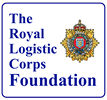Exercise Log Safari
On 17th July, the RLC Foundation was delighted to host corporate members and colleagues from the Armed Forces for a seminar titled “Motivating the workforce in Military and Commercial environments”, followed by Exercise Log Safari on the training area.at Deepcut.
This event adds a new dimension to our ongoing commitment of bringing together logistics professionals from Industry, Army and Academia.
Brigadier Martin Moore, CBE HoC CSS Army HQ, gave a presentation about Whole Force Approach (WFA) underscoring the need to develop “effective, agile and resilient capability delivered by an integrated, preplanned and affordable mix of regular and reserve military, civilian and industry as a first choice to meet Defence Outputs.”
This holistic requirement is a vivid example of the platform for sharing best-practice that is provided through our RLC Foundation events. The agility and resilience required of our personnel across the board means that we need to embrace a broader framework for training and motivation to ensure we recruit and retain the best workforce possible.
Lieutenant Colonel Kirsten Dagless RLC continued this theme by unpacking the critical topic, “How to motivate your workforce – A military perspective”. Different sources of motivation were explored – intrinsic, extrinsic, social and achievement, with the recognition that intrinsic motivation has the most impact. This talk highlighted a situational approach to motivation, and helped highlight ways that the traditional military approach to leadership will need to adapt to meet the flexible goals set out in the WFA.
The need for a flexible, more responsive approach to leadership and training was highlighted further through the presentation by Paul Brooks, founder of the Ardenia Group, who drew examples form his extensive experience in the logistics sector with Unipart (amongst other roles) to highlight approaches to motivation and training in industry. One theme that emerged was the need to be responsive to your workforce and work with them to uncover the wider purpose that helps motivate and sustain meaningful work.
The afternoon practical session provided an ideal complement to the more theoretical approach of the morning. Lunch was provided by RLC chefs whose improvisation within the field kitchen was quite outstanding.
Participants then had the opportunity to visit different stands where RLC skills and trades were on display. Serving soldiers described the training necessary to gain qualifications that are vital both for military service and key to second careers within the civilian environment. Trade skills on display included bomb disposal, postal and courier services, supply and transport, catering, fuel storage and handling, munitions storage and air despatch operations.
One of the afternoon’s highlights was a live demonstration of a Fijian fire pit which demonstrated improvised cooking techniques in the field. A small fire was used to heat rocks over which a grate was placed. After the chicken and potatoes were wrapped in foil for protection, the small pit was covered with stones, soil and even blankets to ensure the heat didn’t escape. After a few hours the food was ready to be served. It was truly scrumptious.
Feedback from both our corporate members and the military community has been extremely positive and we believe that this is one of our best events so far.
